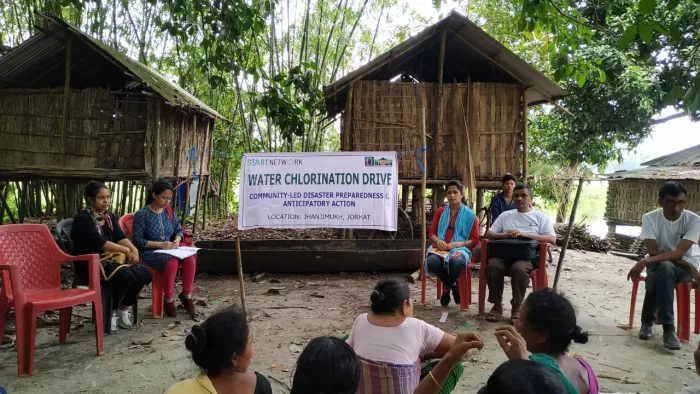ABOUT THE PROJECT
Predictable, coordinated and resourced two-way communication is an area where small investments can achieve big results. However, analysis of past humanitarian responses suggests a gap between the recognition of the importance of this and what actually happens. This is because of a lack of knowledge and skills amongst practitioners and managers, good practices not being reinforced through institutional and policy environments and low level of understanding of the benefits for investing in two-way communication. Where humanitarian responders do share information and set up two-way communication processes, there tends to be a general lack of coordination and there is limited engagement with existing channels such as media outlets, civil society groups or community leaders.
The CDAC Network came together to develop capability and learn from two pilot initiatives in Bangladesh and South Sudan. The former is a country that regularly experiences natural disasters and the latter is severely affected by conflict.
AIMS
The three aims of this project were to:
1. Improve the ability of humanitarian responders to communicate with affected communities
2. Generate evidence and research to influence response and humanitarian policy
3. Establish communication working groups that convene relevant partners for joint action and advocacy.
THE STORY
The establishment of working groups has raised the profile of Communication with disaster affected Communities amongst officials, senior policy makers and agencies. In Bangladesh a website called ‘Shongjog’, which means ‘linking’, was launched to reflect the work of the partners. In South Sudan more than 70 agencies were at the formal launch of the working group at the end of 2015 and heard the UN deputy Humanitarian Coordinator in the country say that communication is needed so the ‘aid encounter is more accountable and transparent’. Gaps and needs assessments in both countries have informed the work of the groups and been used as advocacy tools to demonstrate to senior humanitarian staff that this is an area needing more action.
The CDAC Network’s 'Foundation Training', which was developed to build capacity and knowledge within humanitarian organisations, was delivered to over 40 humanitarian staff as part of the DEPP project in South Sudan and Bangladesh. In Bangladesh an aid worker said the training helped to ‘put himself in the shoes’ of those affected by flooding and as a result he approached his work differently, which in this case led him to realise that communities were using dirty water and appropriate responses needed to be developed to keep them safe.
An innovative component of the project had its first grants under a Flexible Funding Mechanism. The mechanism funded joint actions that have were developed by the working groups to address the gaps and needs identified in regards to communicating with communities. The joint actions included a project in the cattle camps of South Sudan that use communication to reduce raiding and one to develop an indigenous message library for emergencies based on the CDAC Network library. In Bangladesh there were projects that built training capacity, identified best practices, advocacy at the policy level and developed guidelines for community radio approaches in emergencies. Organised activities in South Sudan were suspended after fighting broke out in the capital Juba in July 2016.
WHO WAS INVOLVED?
The CDAC Network project was managed in conjunction with BBC Media Action, Internews, Thomson Reuters Foundation and World Vision. Within the working groups in Bangladesh and South Sudan there were 15 and 22 other agencies respectively, reflecting a mix of international and national organisations, government and media development agencies.
FUNDING
A total of £3,000,000 was allocated to this project which ran from April 2014 to December 2017.
LEARNING
Learning review, output 1: How has Shifting the Power influenced local and national partner's response to emergencies?
Learning review, output 2: Increasing the voice and the influence of local and national NGOs
Protection Mainstreaming Training Package - English
Protection Mainstreaming Training Package - Urdu
To read more about the learning gained from the delivery of this project and other DEPP projects, please visit disasterpreparedness.ngo
KEY CONTACTS
Jonathan Napier Johnathan.Napier@worldvision.org.uk
DEPP Programme Manager
Communicating with Disaster Affected Communities and World Vision UK

